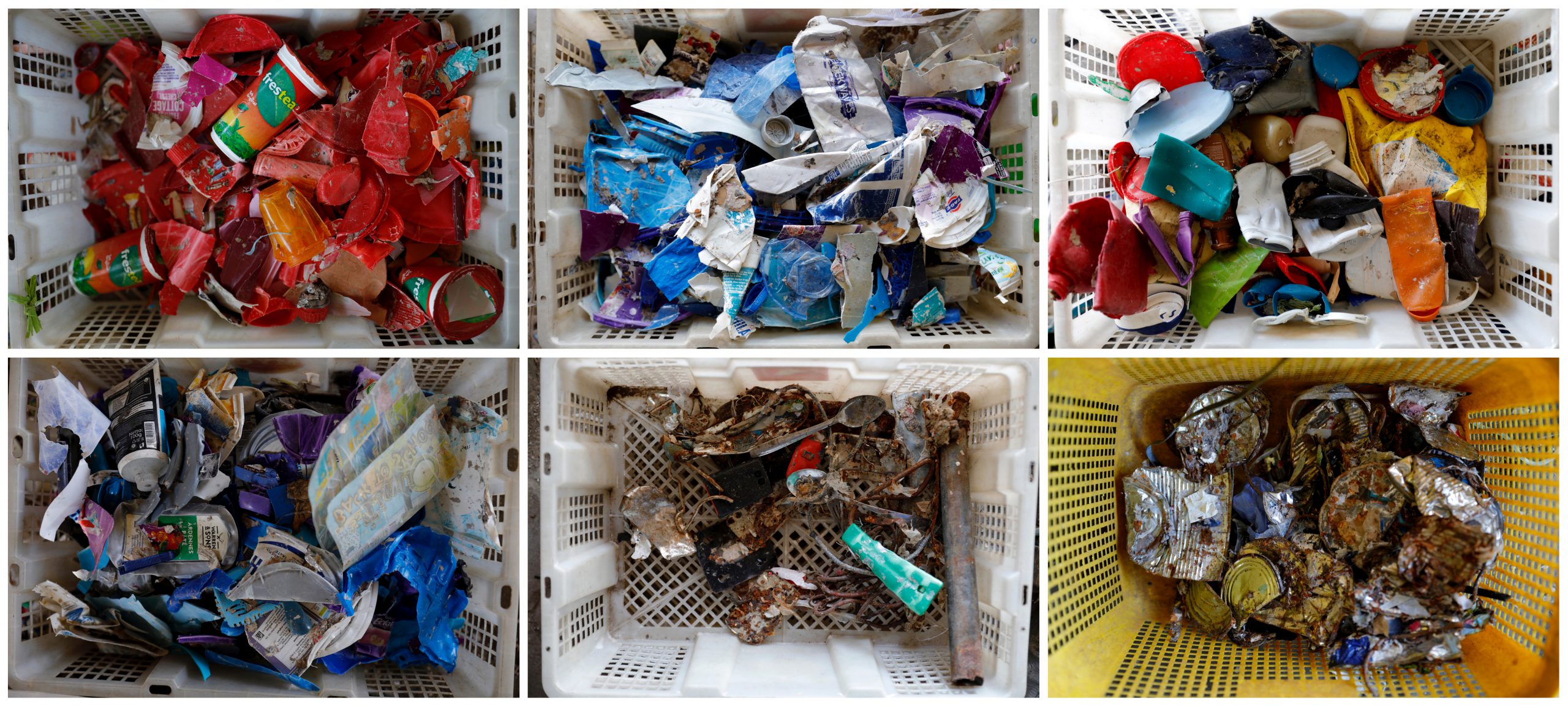FRONTLINE and NPR, in a co-production with the Investigative Reporting Workshop, teamed up over the last seven months to examine the crisis in plastic waste in the environment.
The result: “Plastic Wars,” a new one-hour program, airs Tuesday, March 31, at 10 p.m. on PBS stations nationwide (check local listings) and online.
The program’s producers found that despite efforts to reduce the use of plastic, the industry is scaling up new production and promoting a familiar solution: recycling. But it’s estimated that no more than 10 percent of plastic produced has ever been recycled.
Writer-director Rick Young, correspondent and reporter Laura Sullivan, co-producer and reporter Emma Schwartz, co-producer Fritz Kramer and IRW-FRONTLINE Fellow Orion Donovan-Smith reveal how plastic makers for decades have publicly promoted recycling, despite privately expressing doubts that widespread plastic recycling would ever be economically viable.
“There was never an enthusiastic belief that recycling was ultimately going to work in a significant way,” Lew Freeman, former VP of government affairs for the Society of the Plastics Industry, told FRONTLINE and NPR.
Freeman is one of three top executives in the documentary speaking publicly for the first time, detailing the industry’s strategy to promote recycling in the 1980s and 1990s. Along with a trove of internal documents uncovered by Young, Sullivan and their team, these insider accounts shed new light on the industry’s efforts to overcome growing concern about plastic waste by pushing recycling.
Larry Thomas, who headed the industry’s chief lobbying group at a crucial time in the late 1980s and 1990s, says the major plastic makers knew that there wasn’t enough infrastructure for recycling to amount to much, but the strategy was simple: “If the public thinks the recycling is working, then they’re not going to be as concerned about the environment,” he said.
Environmentalists ran with the promise of recycling, too: “We bought this myth that recycling will solve the problem and we don’t need to worry about the amount of plastic being produced,” Annie Leonard, executive director of Greenpeace USA, said.
“Plastic Wars” explores how much of the waste generated was shipped overseas to be recycled in China. But in 2018, responding to its own pollution problems, China closed its doors to imports of plastic waste. The FRONTLINE team traveled to Indonesia to see where some of that plastic waste from the U.S. is ending up now—and found that some plastics that are supposed to be recycled are instead being dumped in Indonesian communities already struggling to clean up their own waste.
The team also traveled in the U.S. for the program, including spending time inside a new $6 billion plastic plant along the Texas Gulf Coast, where Chevron Phillips Chemical Co.’s Vice President of Sustainability Jim Becker told FRONTLINE and NPR that his company is committed to the industry goal of eliminating plastic waste from landfills by 2040 and plans to recycle 100 percent of all plastics, even if it means making less money.
Becker said better consumer education about how to recycle and significant improvements in recycling infrastructure are both needed: “We’re going to have to invest in innovation because some of these technologies still need to be further developed,” he says.
NPR will air a story from the investigation the same day the program airs, March 31, on All Things Considered (see stations and local broadcast times at NPR.org/stations), with additional radio pieces airing in the coming weeks.
And both FRONTLINE and IRW will publish additional material online. IRW also plans to host a screening and meet-the-producers event in September, which will be free and open to the public.





